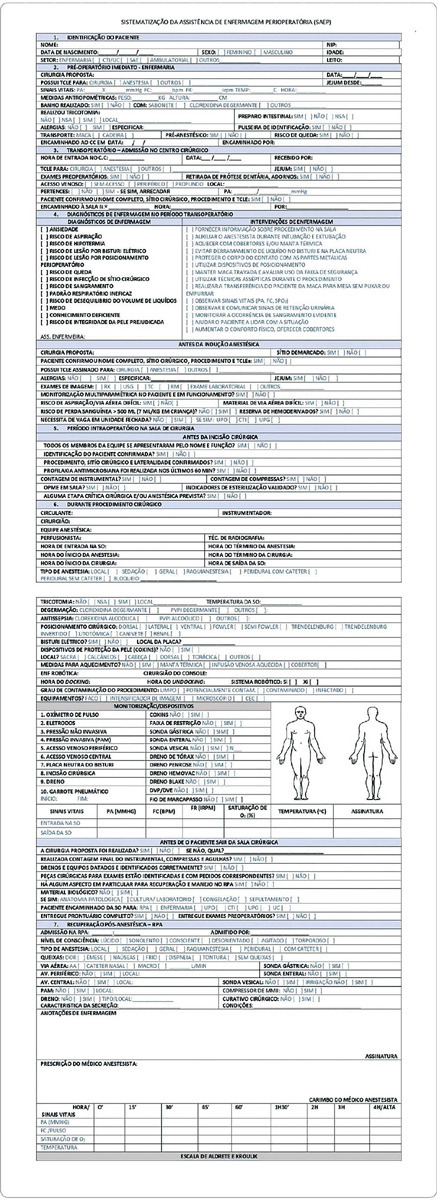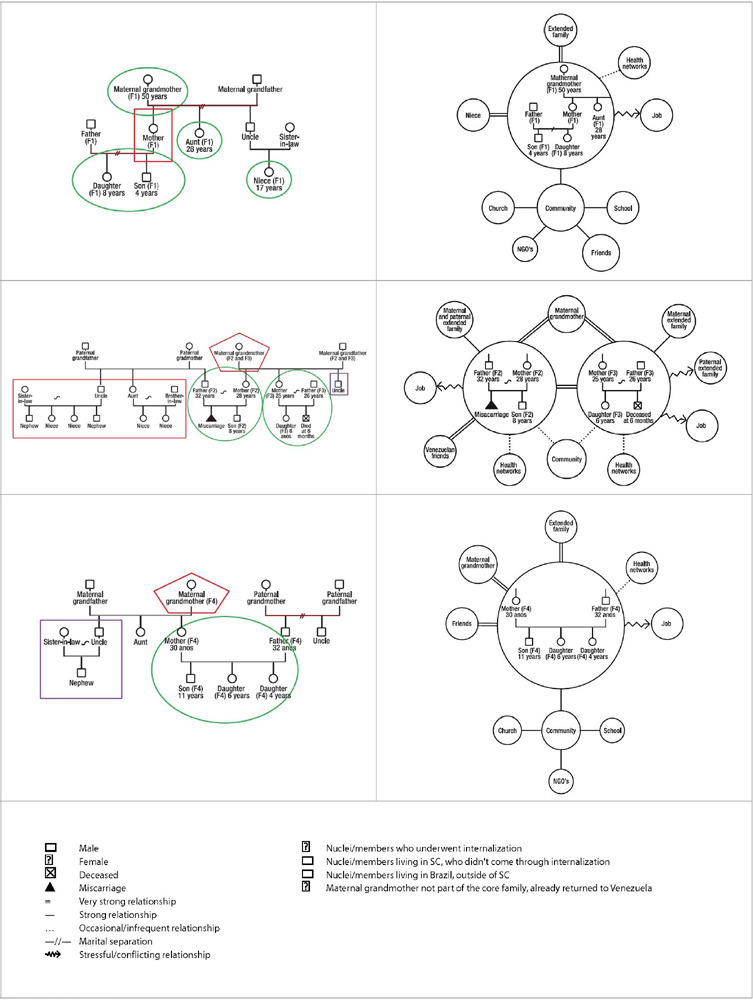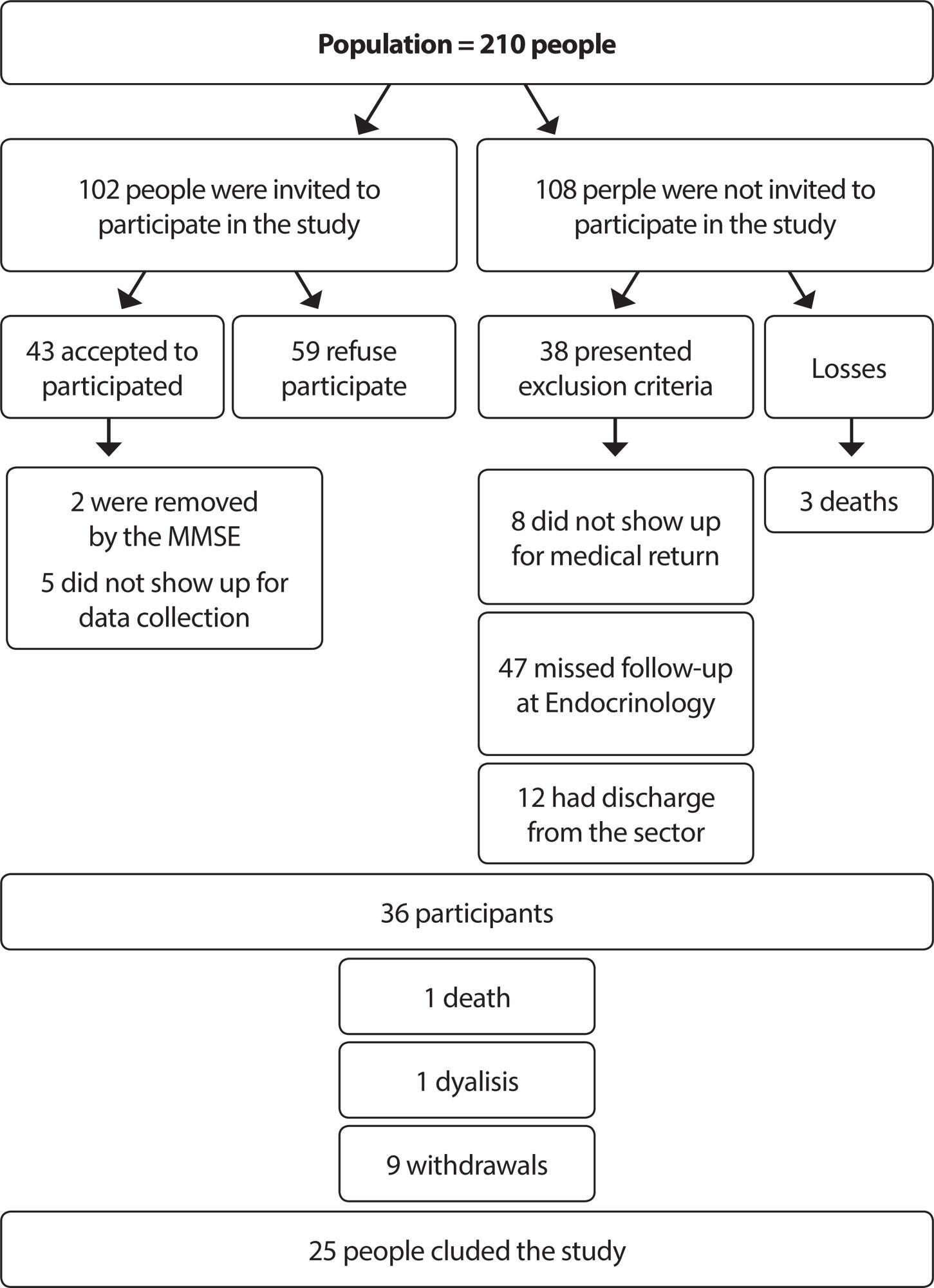-
ORIGINAL ARTICLE12-08-2023
Early ambulation and dhikr complementary therapies effect on intestinal peristaltic in post-open cholecystectomy patients
Revista Brasileira de Enfermagem. 2023;76:e20220636
Abstract
ORIGINAL ARTICLEEarly ambulation and dhikr complementary therapies effect on intestinal peristaltic in post-open cholecystectomy patients
Revista Brasileira de Enfermagem. 2023;76:e20220636
DOI 10.1590/0034-7167-2022-0636
Views0ABSTRACT
Objectives:
to analyze and determine the effect of a combination intervention of early ambulation and dhikr therapy on intestinal peristaltic recovery in post-open cholecystectomy patients.
Methods:
a pre-experimental design with one group pre and post-test design was used. The samples were 15 post-open cholecystectomy patients which were selected using the purposive sampling technique. The data were collected using the instrument observation sheet and analyzed using the Wilcoxon test. Early ambulation used standard operational procedure in the hospital and dhikr therapy was carried out at 2 hours post-operation for 10-15 minutes.
Results:
there was an effect of early ambulation and dhikr therapy on intestinal peristaltic recovery in post-open cholecystectomy patients with general anesthesia (Z=-3.442; p=0.001).
Conclusions:
a combination of early ambulation and dhikr therapy can be recommended as interventions to improve intestinal peristaltic in a post-open cholecystectomy patient with general anesthesia.
Keywords:Anesthesia, GeneralCholecystectomyComplementary TherapiesEarly AmbulationPerioperative NursingSee more -
ORIGINAL ARTICLE12-08-2023
Systematization of perioperative nursing care in robotic surgery: instrument validation
Revista Brasileira de Enfermagem. 2023;76:e20220666
Abstract
ORIGINAL ARTICLESystematization of perioperative nursing care in robotic surgery: instrument validation
Revista Brasileira de Enfermagem. 2023;76:e20220666
DOI 10.1590/0034-7167-2022-0666
Views0See moreABSTRACT
Objective:
To develop and validate an instrument to assist in the systematization of perioperative nursing care in robotic surgery.
Methods:
Methodological study developed in four phases: content survey; textual elaboration; content validation by the group of expert judges and target audience; and elaboration of the electronic instrument layout.
Results:
Eleven expert judges and seven evaluators of the target audience participated. For validation, the Content Validity Index (CVI) was used with a 0.78 cutoff point. The instrument total CVI after evaluation was 0.90 by the expert judges and 0.88 by the target audience.
Conclusion:
The tool built was proved satisfactory for the systematization of perioperative nursing care. The instrument construction was based on the updated scientific literature and validated by the expert judges and target audience.

-
12-08-2023
Nursing experiences in specialized services in child and adolescent mental health: a systematic review of qualitative studies
Revista Brasileira de Enfermagem. 2023;76:e20220550
Abstract
Nursing experiences in specialized services in child and adolescent mental health: a systematic review of qualitative studies
Revista Brasileira de Enfermagem. 2023;76:e20220550
DOI 10.1590/0034-7167-2022-0550
Views1See moreABSTRACT
Objective:
to synthesize evidence from qualitative studies on nursing experiences regarding child and adolescent mental health care in specialized services.
Method:
a systematic review with meta-synthesis of qualitative studies according to JBI guidelines. CINAHL, EMBASE, MEDLINE, LILACS, PSYCinfo, Scopus and Web of Science databases were used. The findings were classified according to the level of reliability and credibility and categorized by similarity between contents.
Results:
229 articles were identified, and five were included in the final sample and organized into the categories: Emotional impact; and Understanding nursing role. The level of evidence found was moderate.
Final considerations:
nursing experiences are permeated by emotional exhaustion, feelings of frustration and difficulty in understanding their professional role. The need for training spaces that qualify this care is highlighted.

-
ORIGINAL ARTICLE12-08-2023
The relationship between level of knowledge and vaginal discharge prevention behavior for nursing student
Revista Brasileira de Enfermagem. 2023;76:e20220602
Abstract
ORIGINAL ARTICLEThe relationship between level of knowledge and vaginal discharge prevention behavior for nursing student
Revista Brasileira de Enfermagem. 2023;76:e20220602
DOI 10.1590/0034-7167-2022-0602
Views0See moreABSTRACT
Objective:
Reproductive health in adolescent girls is very important. To determine the relationship between the level of knowledge and the behavior of preventing vaginal discharge among nursing students.
Methods:
a quantitative, cross-sectional study, with 155 first-year female students at a private faculty of nursing. Data were collected from February to March 2022, using an electronic questionnaire.
Results:
98.1% of participants have a good level of knowledge and 92.3% of participants practice good vaginal discharge prevention behavior.
Conclusion:
good knowledge produces appropriate prevention behavior. The result of this study can be used as a contribution of thoughts and references as a more in-depth study of the factors that influence the level of knowledge and behavior about the disease of the genitalia and the dangers of pathological vaginal discharge.
-
ORIGINAL ARTICLE12-08-2023
Fear of COVID-19 when experiencing pregnancy or childbirth in the pandemic: what are the associated factors?
Revista Brasileira de Enfermagem. 2023;76:e20220755
Abstract
ORIGINAL ARTICLEFear of COVID-19 when experiencing pregnancy or childbirth in the pandemic: what are the associated factors?
Revista Brasileira de Enfermagem. 2023;76:e20220755
DOI 10.1590/0034-7167-2022-0755
Views0See moreABSTRACT
Objective:
to identify factors associated with fear of COVID-19 among women who experienced pregnancy or childbirth during the pandemic.
Methods:
a cross-sectional study, nested within a prospective cohort, using an online survey, from August 2021 to February 2022, based on descriptive data analysis.
Results:
of the 431 participants, 52.8% were postpartum women and 20.1% were pregnant women. With regard to fear of COVID-19, a mean score of 20.46 was obtained (moderate fear). The highest fear scores were present in women whose newborns were admitted to hospital in neonatal critical units (p=0.032), and the lowest among those covered by supplementary health (insurance) (p=0.016).
Conclusion:
among pregnant and postpartum women, high fear of COVID-19 translated into the possibility of having newborns admitted to hospital in a critical unit. The importance of supporting actions to support pregnant/postpartum women’s mental health in relation to COVID-19 or other threats that may influence the neonatal outcome stands out.
-
ORIGINAL ARTICLE12-08-2023
Care for older adults with disabilities in Long Term Care Facility
Revista Brasileira de Enfermagem. 2023;76:e20220767
Abstract
ORIGINAL ARTICLECare for older adults with disabilities in Long Term Care Facility
Revista Brasileira de Enfermagem. 2023;76:e20220767
DOI 10.1590/0034-7167-2022-0767
Views0See moreABSTRACT
Objective:
to analyze the constitution of care offered to older adults with disabilities, from Long Term Care Facility professionals’ perspective.
Methods:
this is a discourse analysis based on the post-structuralist framework. Participants in this study are professionals involved in the care for older adults, totaling 14 respondents, 13 women and one man.
Results:
from professionals’ perspective, there is a fine line between caring for older adults with disabilities and maintaining their autonomy. Care in which autonomy is restricted predisposes older adults to a process of dependency.
Final considerations:
caring for older adults with disabilities constitutes the challenge between caring and maintaining independence. Thus, older adult-centered care should be taken as a premise so that their individualities are respected.
-
ORIGINAL ARTICLE12-08-2023
Polypharmacy, potentially inappropriate medications and associated factors among older adults with hypertension in primary care
Revista Brasileira de Enfermagem. 2023;76:e20220785
Abstract
ORIGINAL ARTICLEPolypharmacy, potentially inappropriate medications and associated factors among older adults with hypertension in primary care
Revista Brasileira de Enfermagem. 2023;76:e20220785
DOI 10.1590/0034-7167-2022-0785
Views0See moreABSTRACT
Objective:
to identify the prevalence and associations of polypharmacy and potentially inappropriate medication use among older adults with hypertension treated in primary care.
Methods:
a cross-sectional study carried out with older adults with hypertension treated at a Family Health Strategy unit. Data collection included analysis of medical records, interviews and multidimensional assessment of older adults. Socio-demographic information and clinical variables were collected. Statistical analysis was performed by multiple logistic regression.
Results:
polypharmacy prevalence was 38.09%, and potentially inappropriate medication (PIM), 28.57%. There was a significant association between polypharmacy and PIM use, altered sleep and ethnicity. PIM use was associated with polypharmacy, worse family functioning, and absence of a caregiver. Cognitive decline reduces the prevalence of these medications.
Conclusions:
polypharmacy and PIM use among older adults with hypertension represent a problem in this population, especially among the most vulnerable.
-
ORIGINAL ARTICLE12-08-2023
Social support networks and life cycle stage of Venezuelan immigrant families
Revista Brasileira de Enfermagem. 2023;76:e20220790
Abstract
ORIGINAL ARTICLESocial support networks and life cycle stage of Venezuelan immigrant families
Revista Brasileira de Enfermagem. 2023;76:e20220790
DOI 10.1590/0034-7167-2022-0790
Views0See moreABSTRACT
Objective:
To understand the structures of social networks of interiorized Venezuelan immigrant families and the life cycle stage they are in.
Methods:
Qualitative multiple-case study with families from the Interiorization Program residing in the Greater Florianópolis, Brazil. Screening occurred through social networks and key informants. For data collection, the photovoice technique and semi-structured interviews were used, categorized with the help of the Atlas.ti software. Genograms and ecomaps were elaborated.
Results:
Of the 4 families interviewed, totaling 7 members with young children, the nuclear family was identified as the main informal support network. Formal networks included schools, churches, and civil society.
Conclusion:
Families rely heavily on their nuclear structure for support, with formal institutions acting as secondary resources. The predominant life cycle stage is focused on families with young children. More efforts are needed to strengthen formal support networks.

-
ORIGINAL ARTICLE09-29-2022
Neither angels nor heroes: nurse speeches during the COVID-19 pandemic from a Foucauldian perspective
Revista Brasileira de Enfermagem. 2022;75:e20201329
Abstract
ORIGINAL ARTICLENeither angels nor heroes: nurse speeches during the COVID-19 pandemic from a Foucauldian perspective
Revista Brasileira de Enfermagem. 2022;75:e20201329
DOI 10.1590/0034-7167-2020-1329
Views1See moreABSTRACT
Objective:
to analyze the processes of meaning production, based on the speeches of nursing professionals, about how they feel about the titles of “angels and heroes” given by society during the pandemic of COVID-19.
Methods:
a qualitative, documentary research. Data was collected in October and November 2020 and analyzed from the perspective of the Discourse Analysis proposed by Michel Foucault.
Results:
they were organized into two thematic categories: “Angels and heroes? The (not) heroic reality of nursing during the pandemic” and “The search for recognition of the professional work of nursing: between what is said and what is not said”.
Final considerations:
the nurses’ speeches enunciate the search for decent conditions for the execution of care, fair wages, and recognition of the professional work by society.
-
ORIGINAL ARTICLE07-23-2021
Transition to exclusive palliative care for women with breast cancer
Revista Brasileira de Enfermagem. 2021;74(5):e20201325
Abstract
ORIGINAL ARTICLETransition to exclusive palliative care for women with breast cancer
Revista Brasileira de Enfermagem. 2021;74(5):e20201325
DOI 10.1590/0034-7167-2020-1325
Views0See moreABSTRACT
Objective:
to analyze the perspectives that affect the transition to exclusive palliative care for women with breast cancer.
Methods:
qualitative, descriptive study, carried out in a public health institution in Rio de Janeiro, Brazil, between December 2018 and May 2019. 28 health professionals were interviewed. Content analysis was used in the thematic modality.
Results:
the operational difficulties were linked to the fragmented physical structure, the late and unplanned nature of the referral, the ineffective communication, and the deficit of human resources. In general, women and family members resist referral because they do not know palliative care. There is no consensus among oncologists on the most appropriate time to stop systemic therapy for disease control.
Final considerations:
the perceived difficulties configure an abrupt referral, accompanied by false hopes and, often, limited to end-of-life care.
-
REVIEW09-21-2020
Postnatal care of newborns in the family context: an integrative review
Revista Brasileira de Enfermagem. 2020;73:e20190454
Abstract
REVIEWPostnatal care of newborns in the family context: an integrative review
Revista Brasileira de Enfermagem. 2020;73:e20190454
DOI 10.1590/0034-7167-2019-0454
Views0See moreABSTRACT
Objective:
to analyze the postnatal care practices of newborns in the family context from the scientific literature.
Methods:
the searches of the integrative literature review were carried out in the Latin American and Caribbean Literature in Health Sciences (LILACS), Nursing Database (BDENF), Scientific Electronic Library Online (SciELO), and U.S. National Library of Medicine (PubMed) databases.
Results:
sixteen studies composed the final sample and, from these, two analytical categories emerged: Practices and doubts of families in postnatal care of newborns; and Best practices in postnatal care of newborns.
Final considerations:
several cultural practices of families differ from scientific recommendations, which can generate risks to the health of newborns. Therefore, it is essential to consolidate educational programs with family members, to improve the quality of care offered and to reduce preventable neonatal deaths in different socio-family contexts.

-
ORIGINAL ARTICLE09-21-2020
Family management ofchildren who experience sickle cell disease: a qualitative study
Revista Brasileira de Enfermagem. 2020;73:e20190521
Abstract
ORIGINAL ARTICLEFamily management ofchildren who experience sickle cell disease: a qualitative study
Revista Brasileira de Enfermagem. 2020;73:e20190521
DOI 10.1590/0034-7167-2019-0521
Views1See moreABSTRACT
Objective:
to know the family management experience of children with sickle cell disease in the light of the Family Management Style Framework.
Methods:
a qualitative case study carried out between September/2015 and July/2016 with 12 members of eight families registered in a blood center in Minas Gerais. The semi-structured interviews were recorded, and the data were analyzed and interpreted by the hybrid model thematic analysis.
Results:
three management styles were identified: five families in the accommodating style; two families in the struggling style; and only one family in the enduring style.It was noted that empowerment was paramount in the acquisition of skills and abilities to care for these children.
Final considerations:
family management knowledge of children with sickle cell disease provided a reflection on nurses’ role in supporting, orienting and encouraging the empowerment of these families aiming at the search for comprehensive care.
-
ORIGINAL ARTICLE12-05-2019
Falls of elderly people living in rural areas: prevalence and associated factors
Revista Brasileira de Enfermagem. 2019;72:177-183
Abstract
ORIGINAL ARTICLEFalls of elderly people living in rural areas: prevalence and associated factors
Revista Brasileira de Enfermagem. 2019;72:177-183
DOI 10.1590/0034-7167-2018-0460
Views0See moreABSTRACT
Objective:
to identify the prevalence and factors associated with falls in the elderly population living in rural areas.
Method:
this is a cross-sectional study, carried out in 2014, with 820 older adults recorded in the Family Health Strategy (Estratégia Saúde da Família). The association between the reporting of falls in 12 months and their associated factors was verified by the Chi-square and Fischer’s exact tests and by multivariate logistic regression analysis.
Results:
the majority of the sample was female (56.1%), white (90.2%) and aged 60-69 years (54.9%). The prevalence of falls was 27.9%, and being female, hypertensive and diabetic was associated to falls.
Conclusion:
it is the responsibility of health professionals to have a closer look at the elderly who have these chronic diseases, especially within the scope of the Family Health Strategy, which works longitudinally with these patients, in addition to improving nursing care aimed at this population.
-
02-25-2022
The multidimensional model of hope as a recovery-focused practice in mental health nursing
Revista Brasileira de Enfermagem. 2022;75:e20210474
Abstract
The multidimensional model of hope as a recovery-focused practice in mental health nursing
Revista Brasileira de Enfermagem. 2022;75:e20210474
DOI 10.1590/0034-7167-2021-0474
Views0See moreABSTRACT
Objective:
To analyze the theoretical dimensions of hope as a recovery-oriented practice in mental health nursing.
Method:
This is a reflective and discursive study based on theoretical and experiential aspects of hope in the recovery process of people facing mental health disorders.
Results:
Maintaining hope in adverse situations, especially while facing mental suffering, requires skills to manage the factors that promote and inhibit hope. This balance can be tricky to reach without the presence of high-skilled professionals. The study presents the concept of hope-inspiring competence and its main dimensions. The nurse’s hope-inspiring competence is recognized as a crucial advanced practice that optimizes mental health by providing motivational resources. Final Considerations: Hope-inspiring competence should be a core principle for recovery-oriented mental health professionals. Despite this recognition, the promotion of hope in mental health nursing specialized practice lacks evidence and visibility.
-
ORIGINAL ARTICLE09-16-2019
Spatial analysis on tuberculosis and the network of primary health care
Revista Brasileira de Enfermagem. 2019;72(5):1197-1202
Abstract
ORIGINAL ARTICLESpatial analysis on tuberculosis and the network of primary health care
Revista Brasileira de Enfermagem. 2019;72(5):1197-1202
DOI 10.1590/0034-7167-2017-0897
Views1See moreABSTRACT
Objective:
to analyze the spatial distribution of new cases of tuberculosis compared to the location of the Primary Healthcare Units that performed the compulsory notification.
Method:
ecological study conducted in Belém, Pará, with 5,294 new cases of tuberculosis notified to Sistema de Informação de Agravos de Notificação for the period from 2010 to 2014. The cases were georeferenced using the software applications ArcGis 10.2 and TerraView 4.2.2. The techniques of Kernel density and global Moran geostatistics were used.
Results:
the incidence of tuberculosis cases did not vary significantly between the years studied, however there was a variation in incidence between neighborhoods. Health units that exhibited higher number of notifications can suffer great influence of migration from nearby neighborhoods.
Conclusion:
the spatial dynamics of tuberculosis associated with health services allows to know the areas with increased risk of tuberculosis and the density of notifications of health units.

-
ORIGINAL ARTICLE10-21-2019
Education in Diabetes Mellitus for blood glucose self-monitoring: a quasi-experimental study
Revista Brasileira de Enfermagem. 2019;72(6):1601-1608
Abstract
ORIGINAL ARTICLEEducation in Diabetes Mellitus for blood glucose self-monitoring: a quasi-experimental study
Revista Brasileira de Enfermagem. 2019;72(6):1601-1608
DOI 10.1590/0034-7167-2018-0731
Views0See moreABSTRACT
Objective:
to evaluate the contributions of an educational program for capillary blood glucose self-monitoring.
Method:
a quasi-experimental study performed in an outpatient unit of a tertiary health care service in a sample of 25 people with Type 2 Diabetes Mellitus, from July 2016 to December 2017, developed through interactive tools for care with capillary blood glucose self-monitoring.
Results:
among the items of capillary blood glucose self-monitoring that showed improvement after participation in the educational program, the most noteworthy are the “postprandial blood glucose values” (p=0.0039), “Interpretation of capillary blood glucose results with meals and medications” (p=0.0156), “recognition of the ‘weakness’ symptom for hyperglycemia” (p=0.0386) and “administration of medications correctly” for hyperglycemia prevention (p=0.0063).
Conclusion:
the study made it possible to recognize the main characteristics of blood glucose self-monitoring that may contribute to the care for the person with diabetes.

Search
Search in:
Nuvem de Tags
Adolescente (85) Atenção Primária à Saúde (239) COVID-19 (91) Criança (91) Cuidados de Enfermagem (269) Educação em Enfermagem (151) Educação em Saúde (139) Enfermagem (930) Enfermagem Pediátrica (86) Estudantes de Enfermagem (77) Estudos de Validação (131) Família (87) Idoso (208) Promoção da Saúde (99) Qualidade de Vida (104) Saúde do Trabalhador (86) Saúde Mental (145) Saúde Pública (82) Segurança do Paciente (150) Tecnologia Educacional (100)



